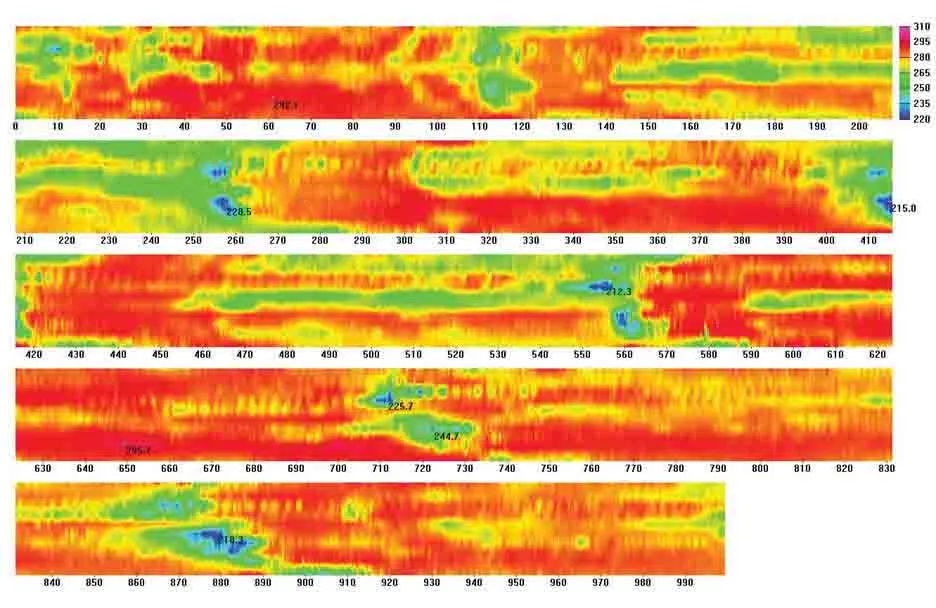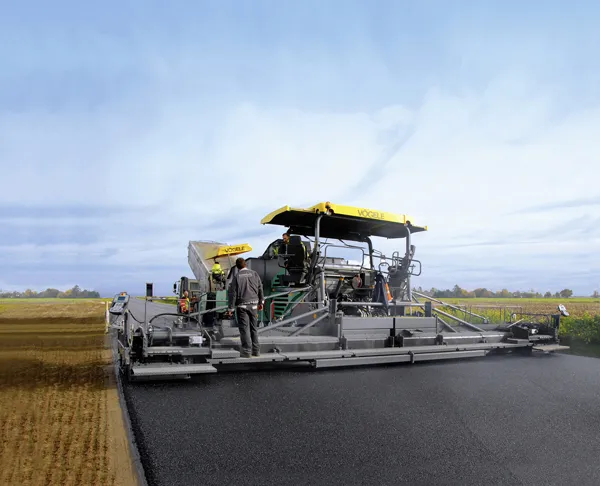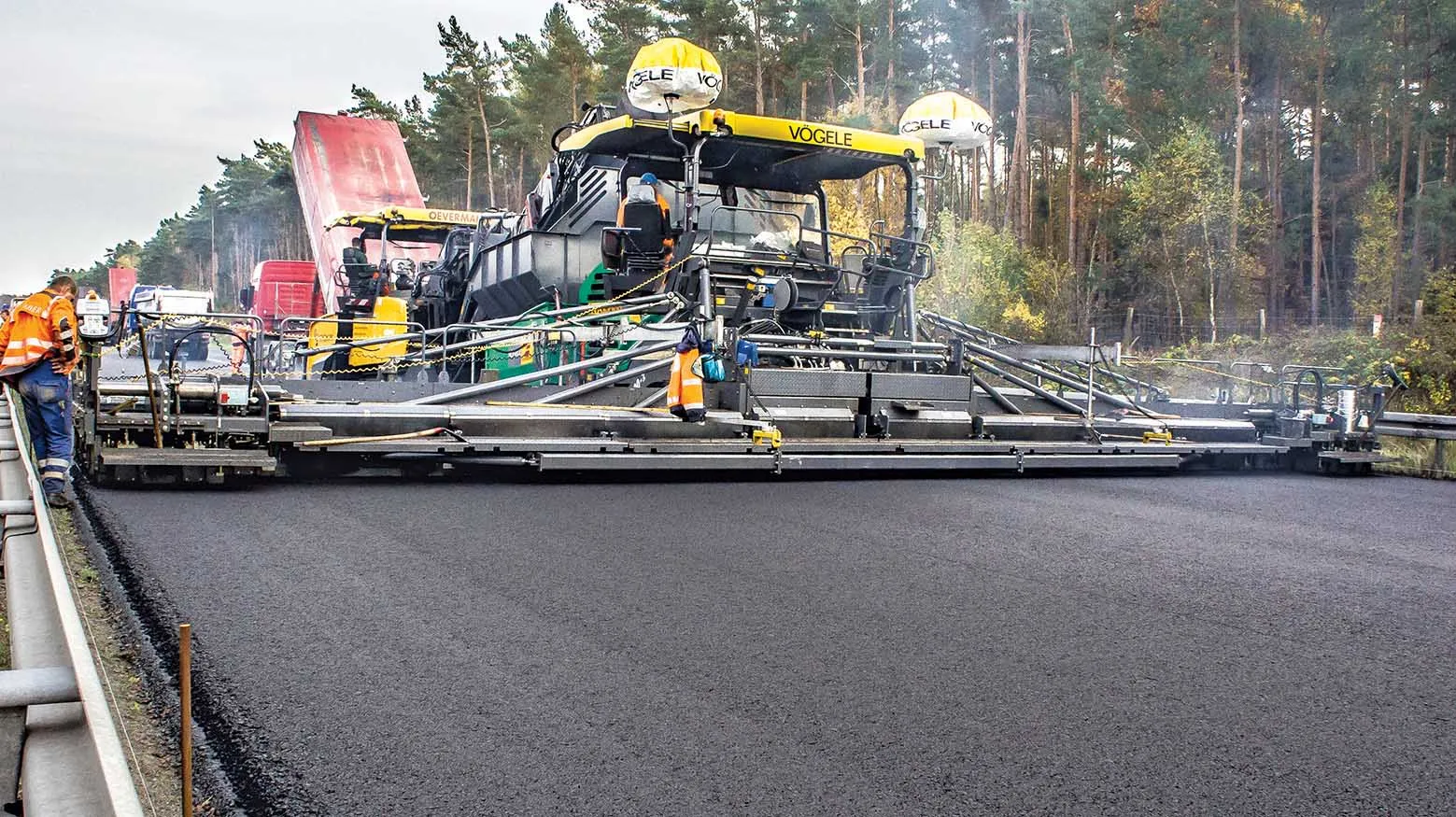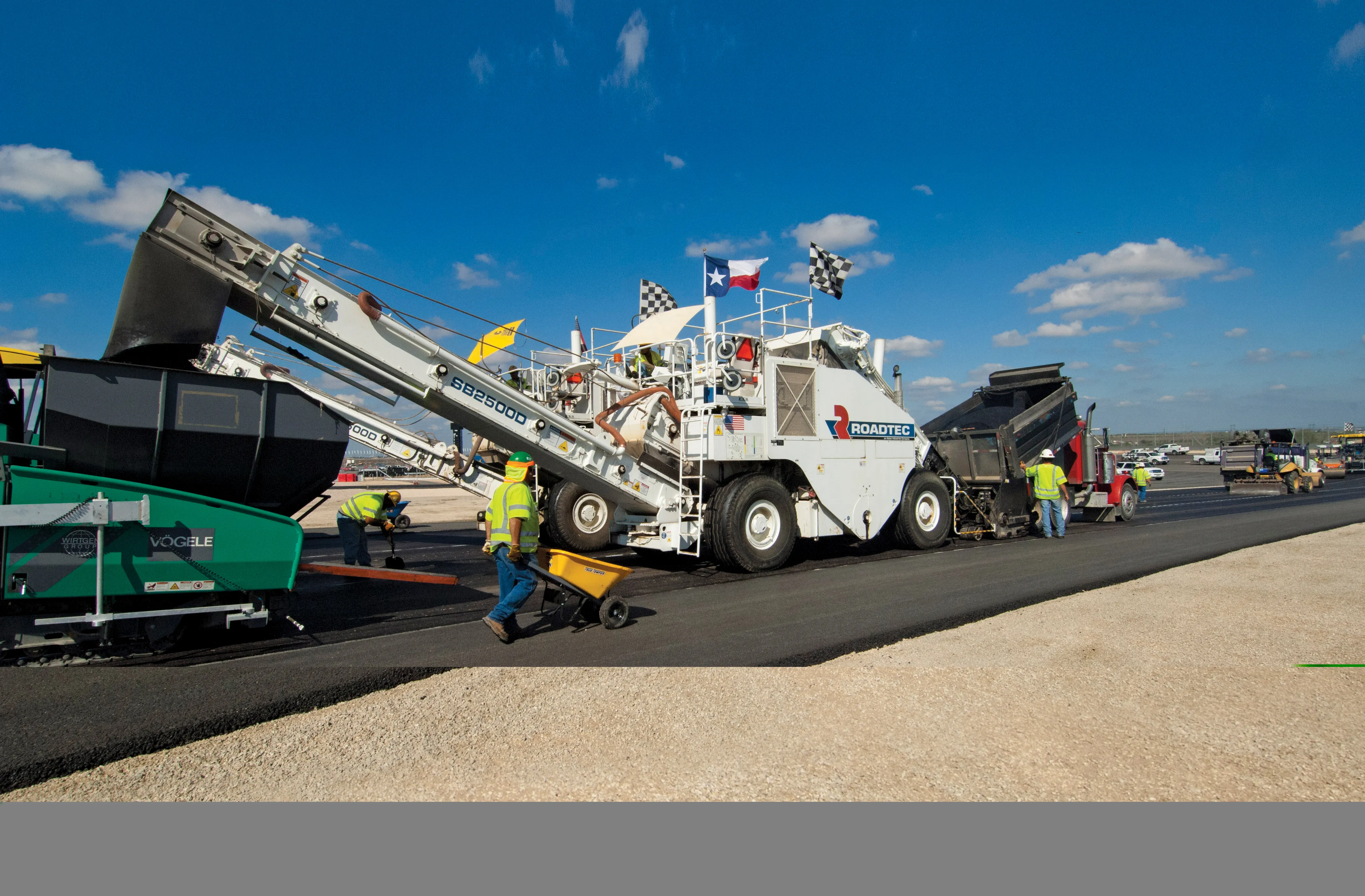Roadtec Shuttle buggies are now being used on major road projects in Poland. This follows a decision made by the Polish road authority, GDDKIA, to use material transfer vehicles on highway projects. The need for a smooth running surface is paramount on highways as in Poland these tolled links can allow speed limits of up to 140km/h. This is why GDDKIA decided the use of a material transfer vehicle was crucial to optimising mix delivery into pavers, so as to help optimise surface finish.
April 1, 2014
Read time: 2 mins
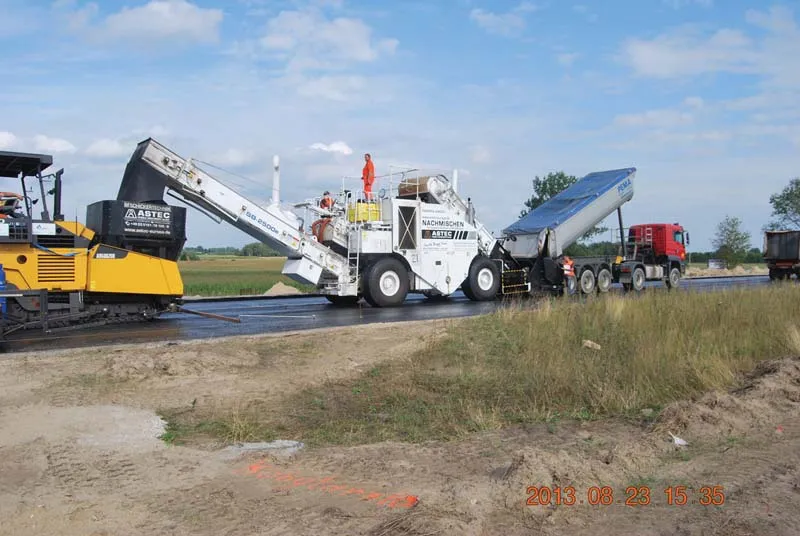
The need for a smooth running surface is paramount on highways as in Poland these tolled links can allow speed limits of up to 140km/h. This is why GDDKiA decided the use of a material transfer vehicle was crucial to optimising mix delivery into pavers, so as to help optimise surface finish.
However, GDDKiA may start to apply similar requirements to some toll-free express roads that have speed limits of up to 120km/h. The response from GDDKiA has been favourable with regard to the quality, with one project seeing 12km of binder being laid in one in one week, using an 11m wide screed paving a 150mm thickness.
Poland’s
Paving was carried out by an ABG/
Remixing the asphalt and feeding the paver through the Shuttle Buggy helped deliver a homogeneous material and allowed continuous paving through each shift. The use of a material transfer vehicle also reduced the number of trucks needed and the turnaround time to the mixing plant and back to the job site. The two Roadtec machines also benefit from automatic cleaning systems, which helps reduce maintenance needs.


